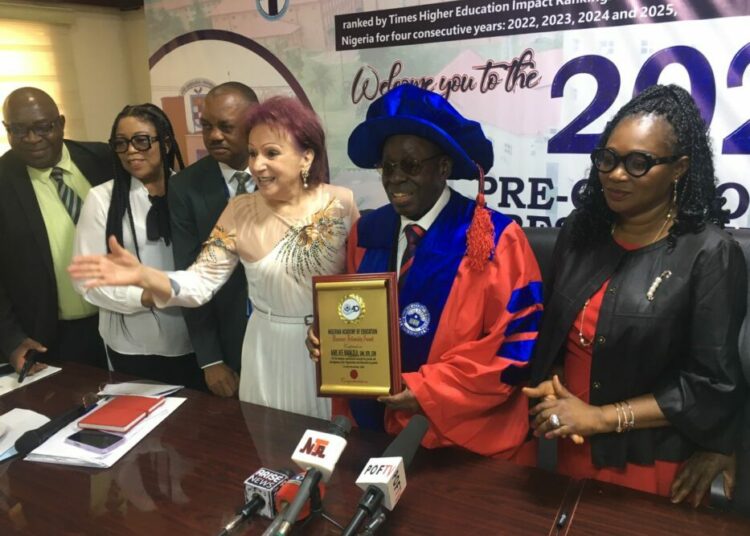Legal icon Aare Afe Babalola has described indiscipline as one of the major problems confronting Nigeria.
The founder of Afe Babalola University, Ado-Ekiti (ABUAD), expressed optimism that the nation’s challenges could be addressed through functional education, stressing that Nigeria would be better off if discipline were instilled in all citizens.
Babalola stated this in Ado-Ekiti, Ekiti State, after he was decorated with the award of Distinguished Honorary Fellowship by the Nigerian Academy of Education (NAE).
“Our problem in Nigeria is indiscipline. When a man is not disciplined, he’s a useless person. When a man is not disciplined, he will steal. He won’t be able to carry out the love of God, the doctrine of God. Love your neighbour as yourself. If you love your neighbour, you won’t steal their property; if you love a neighbour, you won’t harm them. Here, we carry out to the letters the injunction of Christ. We love ourselves.
“I have always believed, and I still believe, that education is the panacea to all our problems, domestic or otherwise. We will continue to ensure that at ABUAD, we deliver quality and functional education,” he assured.
The ABUAD founder, who stated that the university is achieving its objectives, noted that his vision after leaving the University of Lagos some years ago was to establish his own university.
“A private university, a non-profit university, where every profit made will go back to this school. I have no shares there. You have no share there. The money will be saved and kept as endowment funds, which we can use at any time,” he said.
Babalola also disclosed that the university will soon start giving scholarships to students from other foreign countries.
Speaking on the award, the elder statesman added that, “The award is not for me, but for you. The achievement is for everybody who has been working and cooperating with me”.
The Vice Chancellor of ABUAD, Prof. Smaranda Olarinde, described Aare Babalola as an empire, a leader, and a conqueror who had made significant contributions in food production, security, farming, the legal profession, economic spheres, and, most importantly, in the sphere of education.





